Sensor - Relative Humidity and Temperature (Remove and Replace)
Correction code 10206002 0.42 NOTE: Unless otherwise explicitly stated in the procedure, the above correction code and FRT reflect all of the work required to perform this procedure, including the linked procedures. Do not stack correction codes unless explicitly told to do so. NOTE: See Flat Rate Times to learn more about FRTs and how they are created. To provide feedback on FRT values, email ServiceManualFeedback@tesla.com. NOTE: See Personal Protection to make sure wearing proper PPE when performing the below procedure. See Ergonomic Precautions for safe and healthy working practices.
- 2025-07-11: Added information on replacement part requirements.
- 2024-12-02: Updated notes and Service Mode instructions.
Remove
- Open the LH front door and lower the LH front window.
-
Use the touchscreen to clear
DAS Calibration. Wait for the prompt to automatically disappear before
continuing.
NoteControls > Service > Camera Calibration > Clear CalibrationNoteVerify the calibration was cleared successfully.Note"Calibration in Progress" message and progress icon will appear during the next drive cycle.
- Remove the lower quad camera cover. See Quad Camera Cover - Lower (Remove and Replace).
- Remove the rear view mirror. See Mirror - Rear View (Remove and Replace).
- Remove the triple camera hood. See Glare Shield (Remove and Replace).
- Disconnect the electrical harness from the occupant camera on the inside of the upper quad camera cover, and then remove the camera cover from the vehicle.
-
Remove the screws (x4) that
attach the triple camera assembly to the windshield bracket, and then
release the assembly from the bracket.
-
Disconnect the electrical connector from the humidity and temperature sensor.
-
Use a PH00 (Phillips #00) screwdriver to remove the screws (x2) that attach the humidity and temperature sensor to the windshield bracket.
NoteUse the correct screwdriver to remove the screws, otherwise it might strip the screw heads.NoteThe screws are tiny, make sure not to misplace them.
-
Remove the relative humidity and temperature sensor from the windshield bracket.
NoteAngle the sensor circuit board up and over the plastic alignment pin, and then move the sensor circuit board upwards to clear the pin.
Install
-
Clean the area where the foam pad of the humidity and temperature sensor circuit board contacts the windshield with an isopropyl alcohol (IPA) wipe, and then allow the area to dry before continuing.
CAUTIONMake sure all adhesive residue from the windshield is removed and the windshield is dry before installation. The foam pad will not stick if the windshield is wet. Align the located hole of the sensor with the plastic alignment pin on the windshield bracket.
-
Install the new humidity and
temperature sensor circuit board on the windshield bracket.
NoteAlign the hole on the PCB with the plastic alignment pin.
-
Use a PH00 (Phillips #00) screwdriver to install the screws (x2) that attach the humidity and temperature sensor to the windshield bracket.
 0.12 Nm (1 lbs-in)CAUTIONUse a Wiha precision torque wrench or similar to fasten the screws to the windshield bracket. The screw threads in the bracket are very delicate and can strip out very easily.
0.12 Nm (1 lbs-in)CAUTIONUse a Wiha precision torque wrench or similar to fasten the screws to the windshield bracket. The screw threads in the bracket are very delicate and can strip out very easily. -
Connect the electrical connector to the humidity and temperature sensor.
-
Position the triple camera assembly onto the windshield bracket, and then
install the screws (x4) that attach the assembly to the windshield
bracket.
 1 Nm (.7 lbs-ft)TIpUse of the following tool(s) is recommended:
1 Nm (.7 lbs-ft)TIpUse of the following tool(s) is recommended:- T10 socket
- Install the triple camera hood. See Glare Shield (Remove and Replace).
- Install the rear view mirror. See Mirror - Rear View (Remove and Replace).
- Install the lower quad camera cover. See Quad Camera Cover - Lower (Remove and Replace).
-
Perform the following
routine using Service Mode or Toolbox (see 0005 - Service Modes):
UPDATE_CAN-REDEPLOYvia Toolbox: (link)via Service Mode Plus:
- Drive Inverter Replacement ➜ Drive Inverter DIRE1L Replacement ➜ CAN Redeploy
- Drive Inverter Replacement ➜ Drive Inverter DIRE1R Replacement ➜ CAN Redeploy
- Drive Inverter Replacement ➜ Drive Inverter DIRE2 Replacement ➜ CAN Redeploy
- Drive Inverter ➜ Front Drive Inverter Replacement ➜ CAN Redeploy
- Drive Inverter ➜ Rear Drive Inverter Replacement ➜ CAN Redeploy
- Drive Inverter ➜ Rear Left Drive Inverter Replacement ➜ CAN Redeploy
- Drive Inverter ➜ Rear Right Drive Inverter Replacement ➜ CAN Redeploy
- Drive Unit ➜ Front Drive Unit Replacement ➜ CAN Redeploy
- Drive Unit ➜ Rear Drive Unit Replacement ➜ CAN Redeploy
- Thermal ➜ HVAC ➜ CAN Redeploy
- chassis ➜ DPB Post Replacement ➜ CAN Redeploy
- chassis ➜ ESP Post Replacement ➜ CAN Redeploy
- chassis ➜ IDB Post Replacement ➜ CAN Redeploy
- chassis ➜ RCU Post Replacement ➜ CAN Redeploy
- chassis ➜ ESP Replacement Panel ➜ CAN Redeploy
- chassis ➜ IBST Replacement Panel ➜ CAN Redeploy
- Raise the LH front window and close the LH front door.
-
Inform the customer that
manual driving is now required to self-calibrate the camera.
NoteSelf-calibration can take up to 100 miles (160 km) of manual driving, depending upon the road type and condition. Until self-calibration is complete, the message "Autopilot Features Currently Unavailable: Manual Driving Required While Camera Is Calibrating" is displayed if an attempt is made to engage an Autopilot feature.